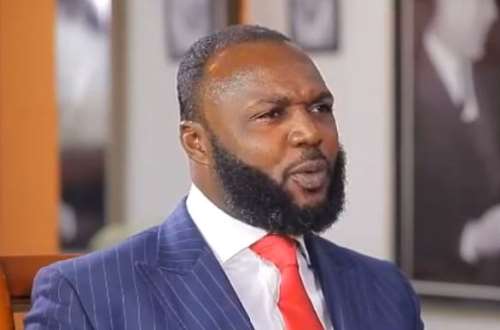An Accra High Court has changed its position and accepted the GH¢90 million repayment terms on Ato Essien’s restitution deal.
The Court presided over by Justice Eric Kyei Baffour last week rejected the settlement deal between state prosecutors and the embattled founder of now-defunct Capital Bank, Ato Essien.
Justice Eric Kyei Baffour, a Justice of Appeal, sitting as an additional High Court Judge, rejected the agreement, indicating that the amount agreed to be paid was not good enough, and adjourned the case to December 13 for the parties to address the court on the legal basis of the terms of the agreement.
But in court on Tuesday, Deputy Attorney General Alfred Tuah Yeboah argued that the funds were state funds as the defunct capital bank has been taken over by the state and state funds expended to pay the monies of depositors.
Counsel of Ato Essien also justified the deal arguing that the state managed to get an extra GHC 30 million in addition to the 56 million Ato Essien agreed to have stolen.
Justice Eric Kyei Baffour after reviewing the arguments of the parties accepted the restitution deal. The accused has since pleaded guilty to the charges of stealing and money laundering.
Ato Essien and two others have been on trial for the past three years for their involvement in the collapse of Capital Bank. The prosecution had also accused Mr. Essien of misappropriating GH¢620 million liquidity support extended by the Bank of Ghana to help keep the bank afloat.
The prosecution and the accused in arriving at the agreement told the court they came under section 35 of the Courts Act, 1993, Act 459 (as amended). The provision states as follows:
“(1) Where a person is charged with an offence before the High Court or a Regional Tribunal, the commission of which has caused economic loss, harm or damage to the State or any State agency, the accused may inform the prosecutor whether the accused admits the offence and is willing to offer compensation or make restitution and reparation for the loss, harm or damage caused.”
Justice Kyei Baffour was sceptical about the application of section 35 of the Courts Act to the present case, as he noted that the monies involved belonged to depositors and shareholders of the defunct bank and not the state per se.
By the proposed agreement, Mr. Essien agreed to pay GH₵90 million in total: GH₵30 million today and GH₵60 million by instalment to the state.
But the court was unhappy with the arrangement.
The judge also thought that the timing for the announcement of the deal was not the best, as he was ready to deliver his judgement.
Background
Mr. Essien is standing trial together with the former Managing Director of the Bank, Rev. Fitzgerald Odonkor, and a former Managing Director of MC Management Service, Tetteh Nettey, also owned by Mr. Ato Essien.
Together, they were tried on 23 counts of criminality, including conspiracy to steal and stealing in connection with the collapse of Capital Bank in 2017.
They however pleaded not guilty to the charges and maintained their innocence all throughout the trial, with Mr. Ato Essien maintaining at all material moments that he had Board approval for all actions he took.
Section 35 of the Courts Act, 1993 (Act 459)
(1) Where a person is charged with an offence before the High Court or a Regional Tribunal, the commission of which has caused economic loss, harm or damage to the State or any State agency, the accused may inform the prosecutor whether the accused admits the offence and is willing to offer compensation or make restitution and reparation for the loss, harm or damage caused.
(2) Where an accused makes an offer of compensation or restitution and reparation, the prosecutor shall consider if the offer is acceptable to the prosecution.
(3) If the offer is not acceptable to the prosecution the case before the Court shall proceed.
(4) If the offer is acceptable to the prosecution, the prosecutor shall in the presence of the accused, inform the Court which shall consider if the offer of compensation or restitution and reparation is satisfactory.
(5) Where the Court considers the offer to be satisfactory, the Court shall accept a plea of guilty from the accused and convict the accused on his own plea, and in lieu of passing sentence on the accused, make an order for the accused to pay compensation or make restitution and reparation.
(6) An order of the Court under subsection (5) shall be subject to such conditions as the Court may direct.
(7) Where a person convicted under this section defaults in the payment of any money required of the person under this section or fails to fulfil any condition imposed by the Court under subsection (6), any amount outstanding shall become due and payable and upon failure to make the payment, the Court shall proceed to pass a custodial sentence on the accused. [As substituted by the Courts (Amendment) Act, 2002 (Act 620), s.4]





